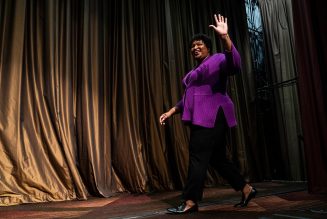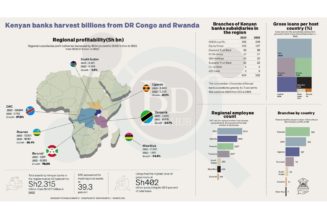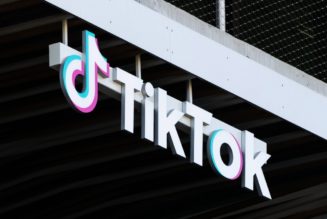Columnists
Exams and education purpose
Thursday February 23 2023
Candidates of the Kenya Certificate of Primary Education (KCPE) and the Kenya Primary School Education Assessment (KPSEA) at Nyamachaki Primary School in Nyeri town after they finished their examination on November 30, 2022. PHOTO | JOSEPH KANYI | NMG
Exams excite Kenyans. And recent release of the Kenya Certificate of Secondary Education (KCSE) results was no exception.
However, after reading several articles and social media posts, I felt compelled to show that the current assessment method defeats the purpose of education.
More often than not, our comments do not reflect the obtaining circumstances and other overriding principles we have committed to.
For example, Sustainable Development Goals, particularly goal four, emphasised that quality education can only be attained by ensuring inclusivity and equity.
It should also promote lifelong learning opportunities for all. In essence, education is a marathon that, no matter how long it takes, you are a marathoner once you finish.
What matters, therefore, is to set clear goals and paths to which runners can successfully finish the race.
Since time immemorial many things have been said about education but only to regret later. For example, Aristotle considered one of the eminent educationists, wrongly believed that higher education was for males only since women were not capable of such complex studies.
If he lived long enough, he could apologise today.
Unfortunately, some of these misconceptions still dominate our minds. A quick survey shows that many people still think that the role of education is to enable young people to obtain suitable employment or to be successive.
And that good grade makes someone a great person. They are wrong.
In my view, a single shot of examination, such as KCSE, cannot measure a person’s intellect. Yet, these exams define the future of many students.
But rarely do we reflect on the fact that out of 881,416 students who took the exams in 2022, only 173,000 or less than 20 percent will join university.
Read: The future of education as AI plugs into system
Here we fail the test of inclusivity. In my 30 years of teaching in higher education, I have seen great students panic in exam rooms and fail. Of course, anybody can have anxiety when put to the test.
But we never give a second chance. Instead, we stigmatise those who fail to make it and glorify those who withstand anxiety as having greater intellectual capacity.
What, then, should be the priority of education?
There are many answers to this question. But it depends on many factors, including the specific context and goals of the education system, the needs of students and the wider society, and the changing demands of the global economy.
And the more fundamental and common goal of education is to provide students with the skills they need to read, write, and perform basic arithmetic.
But most successful countries have priorities in their education to develop critical thinking skills, which enable them to analyse information, evaluate evidence, and solve complex problems.
In some systems of education, the last three years of high school are spent on applying various assessment methods to guide the students in finding the most suitable path of their learning.
And they try to distinguish between academic and applied sciences tracks.
Employers the world over like students from applied sciences backgrounds because they not only graduate with a professional Bachelor’s degree but also come out with a wealth of work experience.
And if one needs to change from applied to academic, they can take two more years to convert.
It is such flexibility that accelerates creativity and innovation to take place.
Accordingly, many global founders of leading technology companies never obtained a college degree. These include Travis Kalanick – Uber, Michael Dell – Dell, Mark Zuckerberg – Facebook, Steve Jobs – Apple, Arash Ferdowsi – Dropbox, Jan Koum – Whatsapp, Jack Dorsey – Twitter and many others.
A good education facilitates economic transformation through human capital development.
The Asians did it by developing a highly skilled and educated workforce well-suited to modern industries’ needs. For example, South Korea was built by the Korean Advanced Institute for Science and Technology.
Read: Elite schools’ parents feel the fee heat on dollar surge
In contrast, many African countries have faced challenges in developing their education systems and building a skilled workforce to meet employment demands.
There is nothing wrong with having good grades if the system ensures “inclusive and equitable quality education and promotes lifelong learning opportunities for all.”









